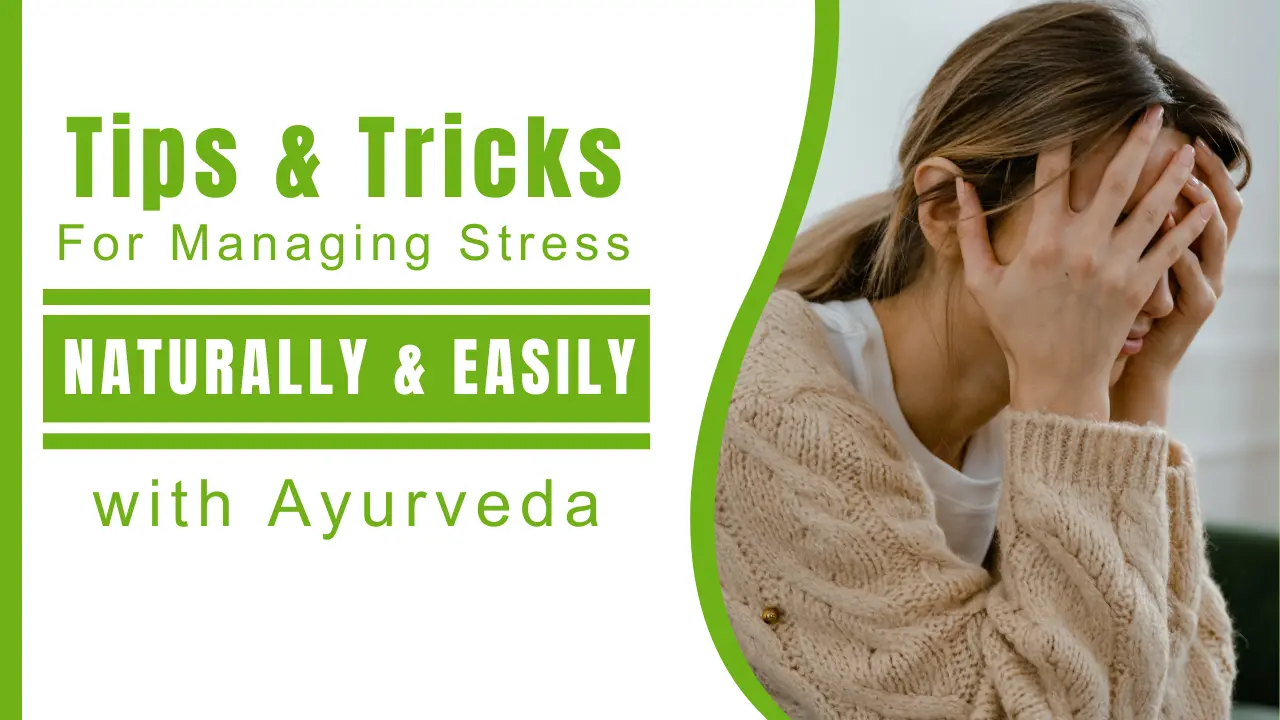In today’s fast-paced world, managing stress is crucial for maintaining overall health and well-being. Ayurveda, an ancient system of medicine, offers natural remedies to alleviate stress effectively. This comprehensive guide explores Ayurvedic methods for stress relief, including the best herbs, supplements, and practices to help you achieve a balanced and peaceful life.
Table of Contents
Understanding Stress and Its Impact
What is Stress?
Stress is the body’s response to any demand or challenge. It can be physical, emotional, or mental, and prolonged stress can lead to various health issues, including anxiety, depression, and cardiovascular problems.
How Ayurveda Views Stress
Ayurveda, the traditional Indian system of medicine, views stress as an imbalance in the body’s doshas (Vata, Pitta, and Kapha). By restoring balance through natural remedies and lifestyle changes, Ayurveda aims to reduce stress and enhance overall well-being.
Top Ayurvedic Tips for Stress Management
1. Incorporate Adaptogenic Herbs
Adaptogenic herbs help the body adapt to stress and maintain balance. Some of the best Ayurvedic herbs for stress relief include:
- Ashwagandha: Known for its rejuvenating properties, Ashwagandha helps reduce cortisol levels and promotes relaxation.
- Brahmi: This herb improves mental clarity and reduces anxiety.
- Tulsi (Holy Basil): Tulsi enhances mood and supports the body’s stress response.
2. Practice Mindful Meditation and Yoga
Meditation and yoga are powerful tools for managing stress naturally. They help calm the mind, improve concentration, and promote a sense of peace.
- Meditation: Practice mindfulness or guided meditation for at least 10-15 minutes daily.
- Yoga: Incorporate stress-relieving yoga poses like Child’s Pose, Corpse Pose, and Cat-Cow Pose into your routine.
3. Follow a Balanced Diet
A balanced diet is crucial for managing stress. Ayurvedic dietary guidelines recommend:
- Eating fresh, organic foods.
- Including whole grains, fruits, and vegetables in your diet.
- Avoiding caffeine, alcohol, and processed foods.
- Staying hydrated with herbal teas and plenty of water.
4. Use Ayurvedic Supplements
Ayurvedic supplements can support stress management. Some effective options include:
- Chyawanprash: A herbal jam that boosts immunity and reduces stress.
- Brahmi Capsules: Improve cognitive function and reduce anxiety.
- Ashwagandha Supplements: Available in powder or capsule form, these supplements help lower stress levels.
5. Adopt a Regular Sleep Routine
Quality sleep is essential for stress reduction. Ayurvedic tips for better sleep include:
- Going to bed and waking up at the same time every day.
- Creating a calming bedtime routine, such as reading or taking a warm bath.
- Avoiding screens and stimulating activities before bedtime.
Natural Remedies for Anxiety
Herbal Teas
Herbal teas can have a soothing effect on the mind and body. Some recommended options are:
- Chamomile Tea: Known for its calming properties.
- Lavender Tea: Helps reduce anxiety and promotes relaxation.
- Peppermint Tea: Aids in digestion and reduces stress.
Essential Oils
Aromatherapy with essential oils can be an effective natural remedy for anxiety. Popular oils include:
- Lavender: Promotes relaxation and improves sleep.
- Bergamot: Reduces stress and uplifts mood.
- Ylang Ylang: Calms the nervous system and enhances emotional balance.
Ayurvedic Lifestyle Practices
Daily Routine (Dinacharya)
Establishing a daily routine can bring structure and reduce stress. Key practices include:
- Morning Rituals: Start your day with oil pulling, tongue scraping, and drinking warm water with lemon.
- Exercise: Incorporate light exercise like walking, yoga, or stretching.
- Self-Massage (Abhyanga): Use warm sesame oil for a calming self-massage.
Detoxification (Panchakarma)
Panchakarma is an Ayurvedic detoxification process that helps remove toxins and restore balance. It includes therapies like:
- Vamana (Therapeutic Vomiting): Eliminates toxins from the stomach.
- Virechana (Purgation Therapy): Cleanses the intestines.
- Basti (Enema Therapy): Removes toxins through the colon.
FAQs
1. What are the best Ayurvedic herbs for stress relief?
Ashwagandha, Brahmi, and Tulsi are among the most effective Ayurvedic herbs for reducing stress and promoting relaxation.
2. How can I manage stress naturally through Ayurveda?
You can manage stress naturally through Ayurveda by incorporating adaptogenic herbs, practicing yoga and meditation, following a balanced diet, using Ayurvedic supplements, and establishing a regular sleep routine.
3. Are there any Ayurvedic supplements specifically for stress?
Yes, Ayurvedic supplements like Chyawanprash, Brahmi capsules, and Ashwagandha supplements are known for their stress-relieving properties.
Conclusion
By integrating these Ayurvedic tips and remedies into your daily life, you can manage stress naturally and achieve a harmonious balance. Embrace the wisdom of Ayurveda for a healthier, stress-free existence.
Nirogi Healthcare
This blog post aims to provide valuable information on managing stress naturally with Ayurvedic medicine. Feel free to explore our website, Nirogi Healthcare, for more insights and products that support your journey to wellness.
| Natural Remedies for PCOS: Ayurvedic Treatments and Benefits | Check out Here |
| Top 5 Herbs for Managing Joint Pain Naturally: Benefits of Ortho Joint Plus | Check out Here |



